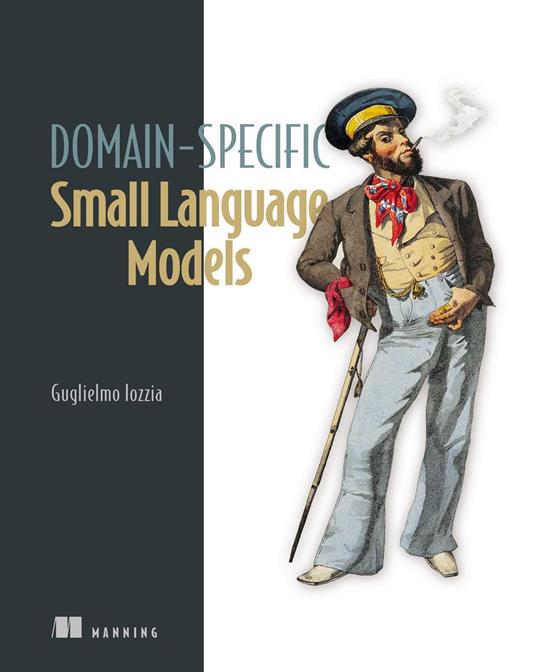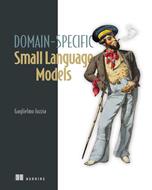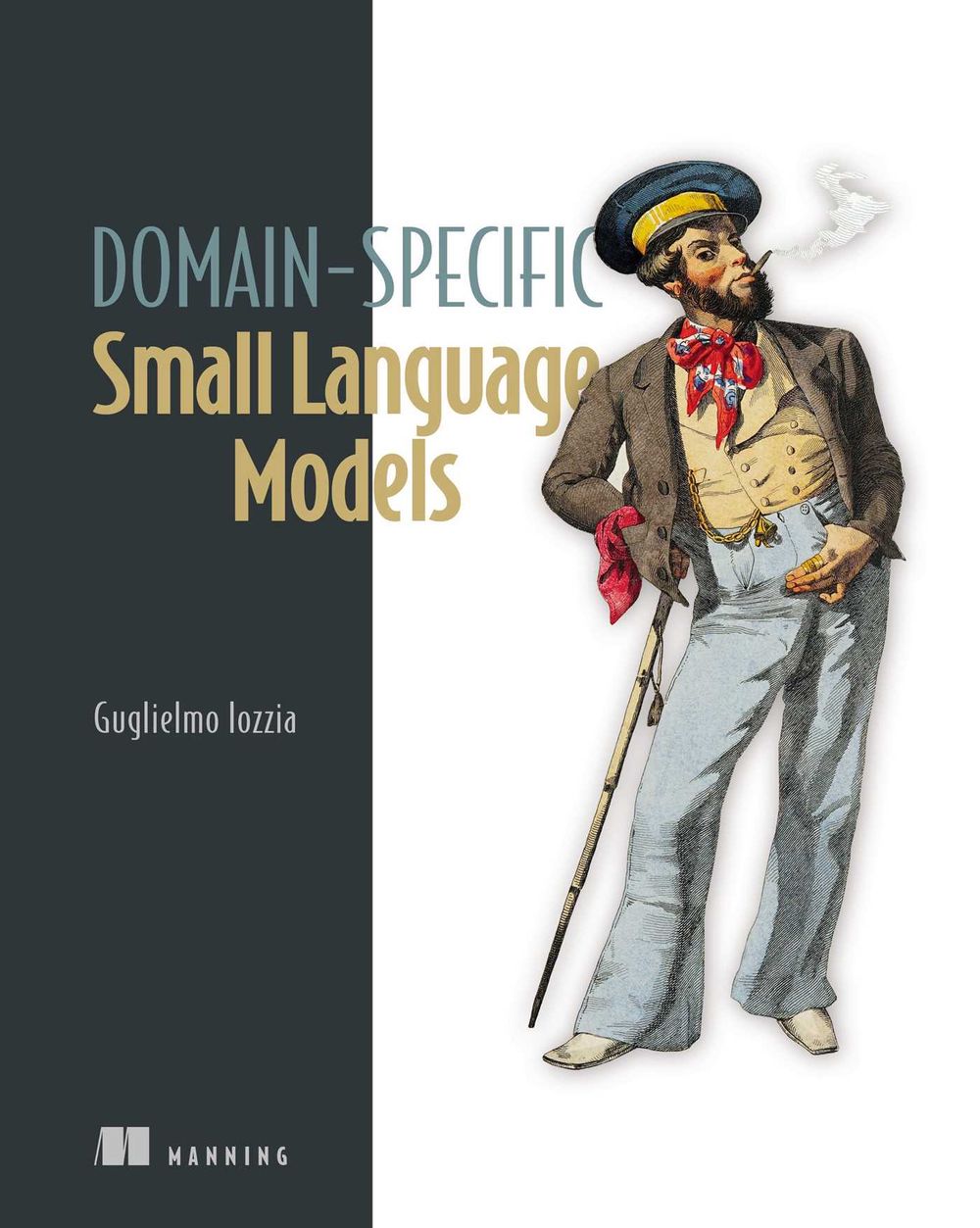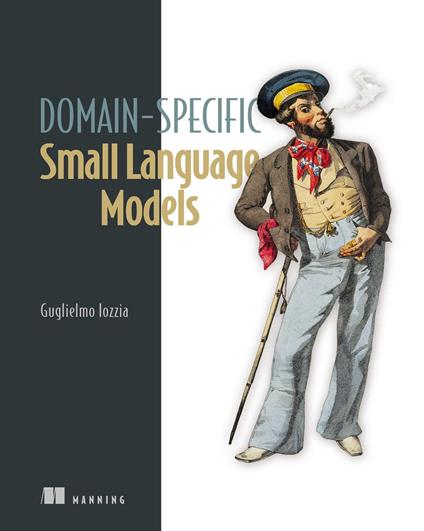Domain-Specific Small Language Models
Bigger isn’t always better. Train and tune highly focused language models optimized for domain specific tasks. When you need a language model to respond accurately and quickly about a specific field of knowledge, the sprawling capacity of a LLM may hurt more than it helps. Domain-Specific Small Language Models teaches you to build generative AI models optimized for specific fields. In Domain-Specific Small Language Models you’ll discover: • Model sizing best practices • Open source libraries, frameworks, utilities and runtimes • Fine-tuning techniques for custom datasets • Hugging Face’s libraries for SLMs • Running SLMs on commodity hardware • Model optimization or quantization Perfect for cost- or hardware-constrained environments, Small Language Models (SLMs) train on domain specific data for high-quality results in specific tasks. In Domain-Specific Small Language Models you’ll develop SLMs that can generate everything from Python code to protein structures and antibody sequences—all on commodity hardware. About the book Domain-Specific Small Language Models teaches you how to create language models that deliver the power of LLMs for specific areas of knowledge. It provides a practical, application-focused counterpart to foundational texts like Sebastian Raschka’sBuild a Large Language Model (From Scratch), showing you how to adapt large-scale concepts for efficient, specialized use. You’ll learn to minimize the computational horsepower your models require, while keeping high–quality performance times and output. You’ll appreciate the clear explanations of complex technical concepts alongside working code samples you can run and replicate on your laptop. Plus, you’ll learn to develop and deliver RAG systems and AI agents that rely solely on SLMs, and without the costs of foundation model access. About the reader For machine learning engineers familiar with Python. About the author Guglielmo Iozzia is a Director, ML/AI and Applied Mathematics at MSD. He studied Electronic and Biomedical Engineering at the University of Bologna, has an extensive background in Software and ML/AI Engineering applied to real-life use cases across different industries, such as Biotech Manufacturing, Healthcare, Cloud Operations, and Cyber Security.
-
Autore:
-
Anno edizione:2026
-
Editore:
-
Lingua:Inglese
Formato:
Gli eBook venduti da Feltrinelli.it sono in formato ePub e possono essere protetti da Adobe DRM. In caso di download di un file protetto da DRM si otterrà un file in formato .acs, (Adobe Content Server Message), che dovrà essere aperto tramite Adobe Digital Editions e autorizzato tramite un account Adobe, prima di poter essere letto su pc o trasferito su dispositivi compatibili.
Cloud:
Gli eBook venduti da Feltrinelli.it sono sincronizzati automaticamente su tutti i client di lettura Kobo successivamente all’acquisto. Grazie al Cloud Kobo i progressi di lettura, le note, le evidenziazioni vengono salvati e sincronizzati automaticamente su tutti i dispositivi e le APP di lettura Kobo utilizzati per la lettura.
Clicca qui per sapere come scaricare gli ebook utilizzando un pc con sistema operativo Windows



